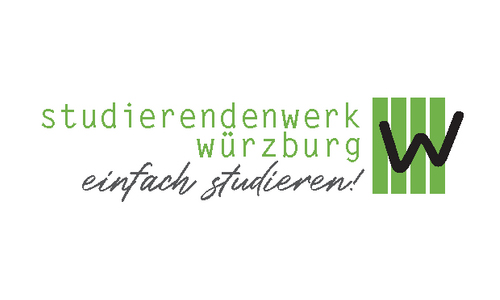Living and life style

Photo: University of Würzburg
Würzburg City
Würzburg is a vibrant university city perfectly located in the center of Germany and Europe. It’s a place where history and student life blend seamlessly, from the iconic Marienberg Fortress to the buzzing squares filled with cafés and street musicians. You can explore stunning landmarks like the UNESCO-listed Würzburg Residence, stroll through the vineyards along the Main River, or dive into the city’s lively arts scene. Throughout the year, there’s always something happening – from summer music and wine festivals to the enchanting Christmas Market in winter. With its welcoming vibe, central location, and plenty of student-friendly spots, Würzburg is a fantastic place to study, make friends, and create lasting memories.
The cost of food, clothing, cultural events and gastronomy in Würzburg is comparable to the European average. International students can manage with a monthly budget of 800 to 1000 €, assuming they are content with moderately priced accommodations, e.g. shared flats or subsidized student accommodations.
Würzburg is easy to reach and well connected to major European cities. It has excellent rail links—frequent high-speed trains (ICE) connection to Frankfurt, Munich, Berlin, and beyond. For international travelers, Frankfurt International Airport is just 1.5 hours away by direct train, providing easy access to flights from all over Europe and the world.
For more information please download this welcome guide.

Accommodation
Würzburg is very popular with students. As a consequence finding a flat may take some time, and you should plan many months in advance. Therefore we reserve several flats at guest-house for international exchange students. The flats at the guest-house are fully furnished and centrally located, cost around 500€ per month, making it perfect accommodation for students. If you are exchange students, please ask for the guest-house as soon as possible because they must be booked many months in advance. A binding booking must be made through your host institute. If you are not an exchange student, you may look for accommodation online via many websites such as www.wg-gesucht.de, www.immowelt.de, www.immobilienscout24.de.

Transportation
Würzburg has a reliable network of trams and buses which run all over the city and to neighbouring towns and villages. The tram and bus schedules for each line are displayed directly at each stop and are available online. For all enrolled students, the JMU Card serves as a semester ticket and can be used on all bus and tram lines. Important connections from and to the Campus Am Hubland are line 10 (Sanderring – Campus Nord), line 14 (Hauptbahnhof – Gerbrunn), line 114 (Hauptbahnhof – Universitätszentrum), line 214 (Hauptbahnhof – FHWS).
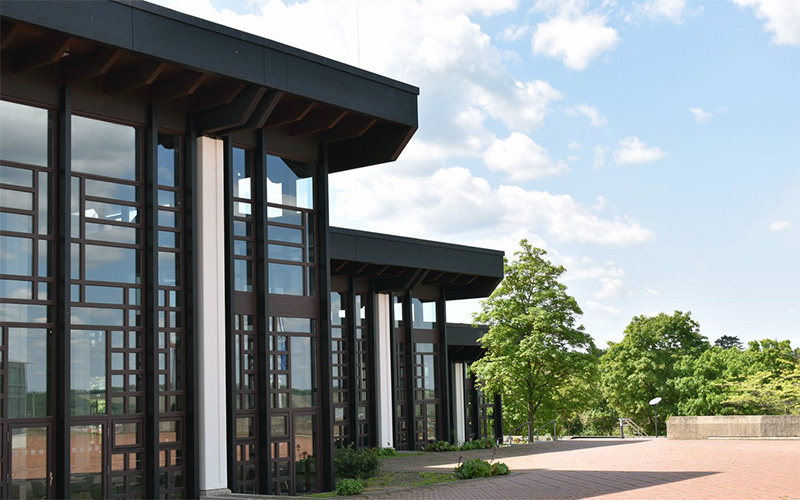
Canteens
There are seven canteens (“Mensa”, “Mensateria” or “Burse”) throughout the city near the major locations of the university. There are 2 at Campus Am Hubland, Canteen Campus Hubland Süd (opposite of library) and Mensateria Campus Hubland Nord Würzburg (pass the library just over the bridge). Meals can either be paid for with your JMU Card or in cash. Menus are updated daily along with ingredients and allergy warnings so that you know exactly what is being served. More information you can find here.
Student Services and Support
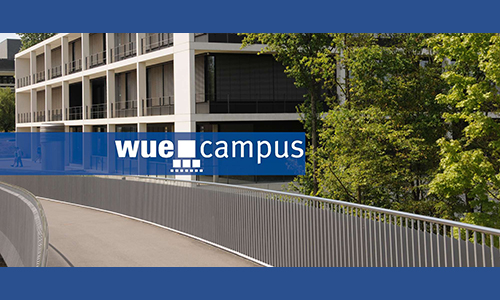
Online system
WueCampus is the university’s online learning platform, where you’ll find lecture notes, assignments, and announcements for your courses. It’s also the place to connect with your professors and classmates.
WueStudy is the central hub for course registration, exam management, and checking your grades. It’s essential for planning your semester and staying on top of important deadlines.
Legal Advice
Studentenwerk Würzburg supports the students with legal questions and problems in various areas of law. The advice is provided by lawyer Sandra Eitel. All consultations are free of charge and confidential. Typical problem areas include Rental or employment contracts and Payment obligations (receivables and contributions). More information see here.
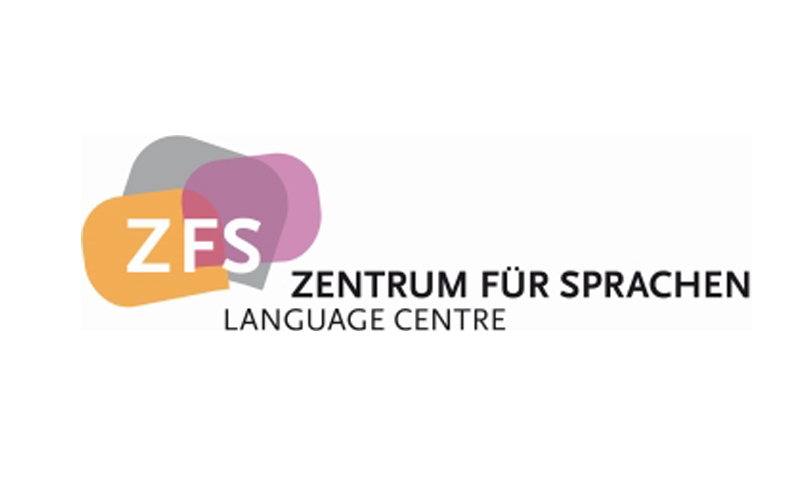
Learning German
The Sprachzentrum (Language Center) of University of Würzburg offers international students free german courses “Deutsch als Fremdsprache (Niveau A1 – C2 des GER)”. Whether you’re a beginner or already have some experience, there are courses designed to support your language learning and help you feel more confident in everyday life, your studies, and beyond. There are courses offered for other language too, you can check out the course list here.
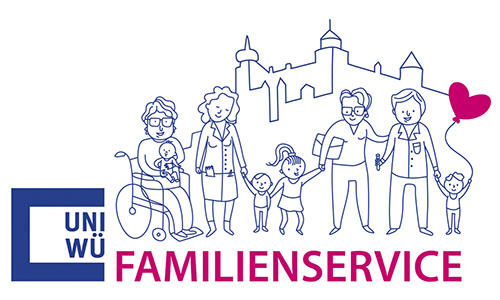
Family service
The JMU promotes the compatibility of family and career. JMU offers kindergarten (Campus Kinderhaus) for a total of 120 daycare for infants and children, starting from an age of 10 months until they start school. For students and junior scientists there is the possibility to apply for Campus StudiKids, which offers child care for babies and infants between 2-18 months. There is holiday daycare programme Campus Camp for up to 30 children aged 6-12 years organised by the Family Service.
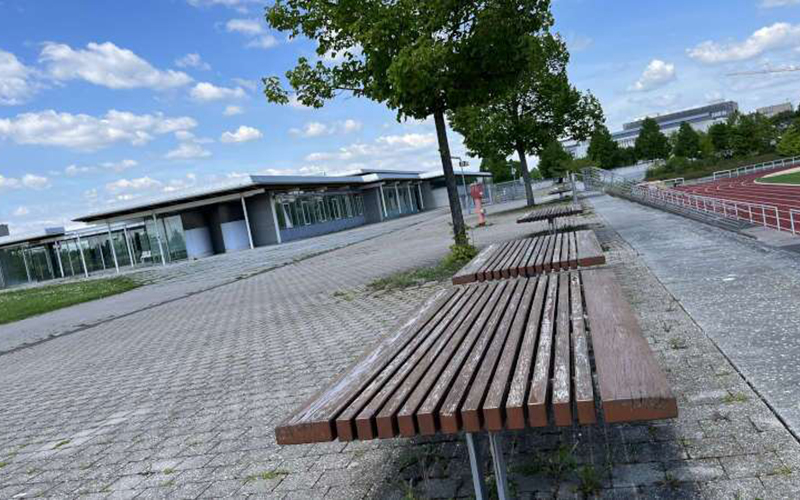
Sport variety
The Hochschulsport program at the Sportzentrum of the University of Würzburg offers a wide variety of sports and activities for all fitness levels and interests! From team sports like football, volleyball, and basketball to individual options like yoga, climbing, martial arts, or fitness training – there’s something for everyone. Whether you’re a beginner or an experienced athlete, you’ll find the right course to suit your goals and schedule. Most courses are either free or offered at a very low cost for students and staff of the university.

Useful links
International Office: supports international students and scholars, offering guidance on study programs, exchange opportunities, and integration into university life.
Welcome Centre: central service point for new international students, assisting with administrative and practical matters related to their stay at JMU.
Studierendenwerk Würzburg: responsible for student welfare services, including housing, dining facilities, financial aid, and counseling
Health and wellbeing
Everyone living or working in Germany must have health insurance. It must be proven that at least out-patient medical treatment and hospital costs are covered by a health insurance company and certain medical check-ups are included. Students must have a valid health insurance policy before entering the host country, whose terms of validity have to correspond to their entire stay, to cover all illnesses and injuries which may be sustained whilst attending the programme. In case of EU-citizenship EU assurance cover suffices; a separate/complementary travel insurance is recommended.
Public health insurance:
Public health insurance providers (e.g., AOK, TK, Barmer) offer affordable student rates until the age of 30 or until the 14th semester. Monthly contributions for student health insurance range from approximately €120 to €130, covering essential medical care, hospital stays, and preventive services. International students from EU/EEA countries can use their European Health Insurance Card (EHIC), while non-EU students must either join a German public health insurer or provide proof of equivalent private insurance.
Liability Insurance (Haftpflichtversicherung):
In addition to the compulsory insurances, (Third-party private) Liability Insurance (“Haftpflichtversicherung”) is not compulsory but are considered “must haves” or at least useful to various degrees depending on your own personal risk profile. It covers physical injury or material damage to others caused by you. Please note: most private liability insurances do not cover damage caused at work. If you work with expensive equipment, e.g. in a lab, it is advisable to cover that risk through an additional workplace liability insurance.
Family doctor (Hausarzt):
In Germany, your Hausarzt (general practitioner or family doctor) is your main point of contact for all general health concerns. They treat common illnesses, give medical advice, prescribe medication, and refer you to specialists if needed. As a student, it’s a good idea to register with a Hausarzt near your home early on, so you know where to go when you’re sick. Appointments are usually needed during weekdays. Call ahead or book online. Most doctors speak English – still it is better to ask before hand when you choose one. When you visit the family doctor bring your health insurance card to every visit.
Medical emergency:
For Serious Emergencies – Call 112
For medical help in Würzburg on a weekend or public holiday and it’s not an emergency, here’s what you should do:
1. Call 116 117 – Medical On-Call Service
Dial 116 117 (free, available 24/7, no area code needed). The staff will assess your situation and tell you where to go or whether a doctor can come to you. You can speak in English, and they are used to handling international calls.
2. Go to a Local Medical Practice
After calling, you may be advised to visit one of these on-call clinics: Juliusspital (Juliuspromenade 19), Theresienklinik (Domerschulstraße 1), University Hospital (Eye Emergencies only, Josef-Schneider-Straße 11). You do not need an appointment to go there — just show up with your health insurance card.
VISA and Residence Permit
A visa allows you to travel to Germany and is usually limited to 90 days. For longer stays, non-EU citizens must apply for a residence permit for students at the Foreigners’ Registration Office (“Ausländerbehörde”) responsible for your area in Germany before your visa expires. This is also necessary for international students who do not need a visa to travel to Germany.
A visa can be applied for at all German consulates and embassies worldwide. The application process can last months and this should be taken into account when planning your stay. The following documents are usually needed for the application: Passport; Multiple passport photos (not older than 4 weeks); Application form; letter of admission (Zulassungsbescheid) by JMU; Proof of health insurance; Consular fees; etc. However, what is required can vary. Clarify this before your appointment in order to avoid a prolonged waiting time.
You must apply for a national visa (D visa). With this visa you can also travel to other countries in the Schengen area for 90 days. You should under no circumstances travel to Germany with a tourist visa (“Schengen visa”, type C). You are not allowed to study with a tourist visa and it cannot be converted into a residence or work permit in Germany. You would risk having to travel back to your home country in order to start the application process over again.
Anmeldung – Registering Your Address in Germany
When you move to Germany, you MUST register your new address at the Bürgerbüro (Residents’ Registration Office) within 14 days of arrival. This process is called Anmeldung. Anmeldung is required for getting a residence permit, opening a bank account, getting a student card, or signing up for health insurance. If your address is in Würzburg, you should go to Bürgerbüro Stadt Würzburg (Rückermainstraße 2, 97070 Würzburg).
What to bring:
- Passport or national ID
- Completed Anmeldung form (available online or at the office)
- Landlord confirmation (Wohnungsgeberbestätigung)
- Health insurance card/number (if available)
